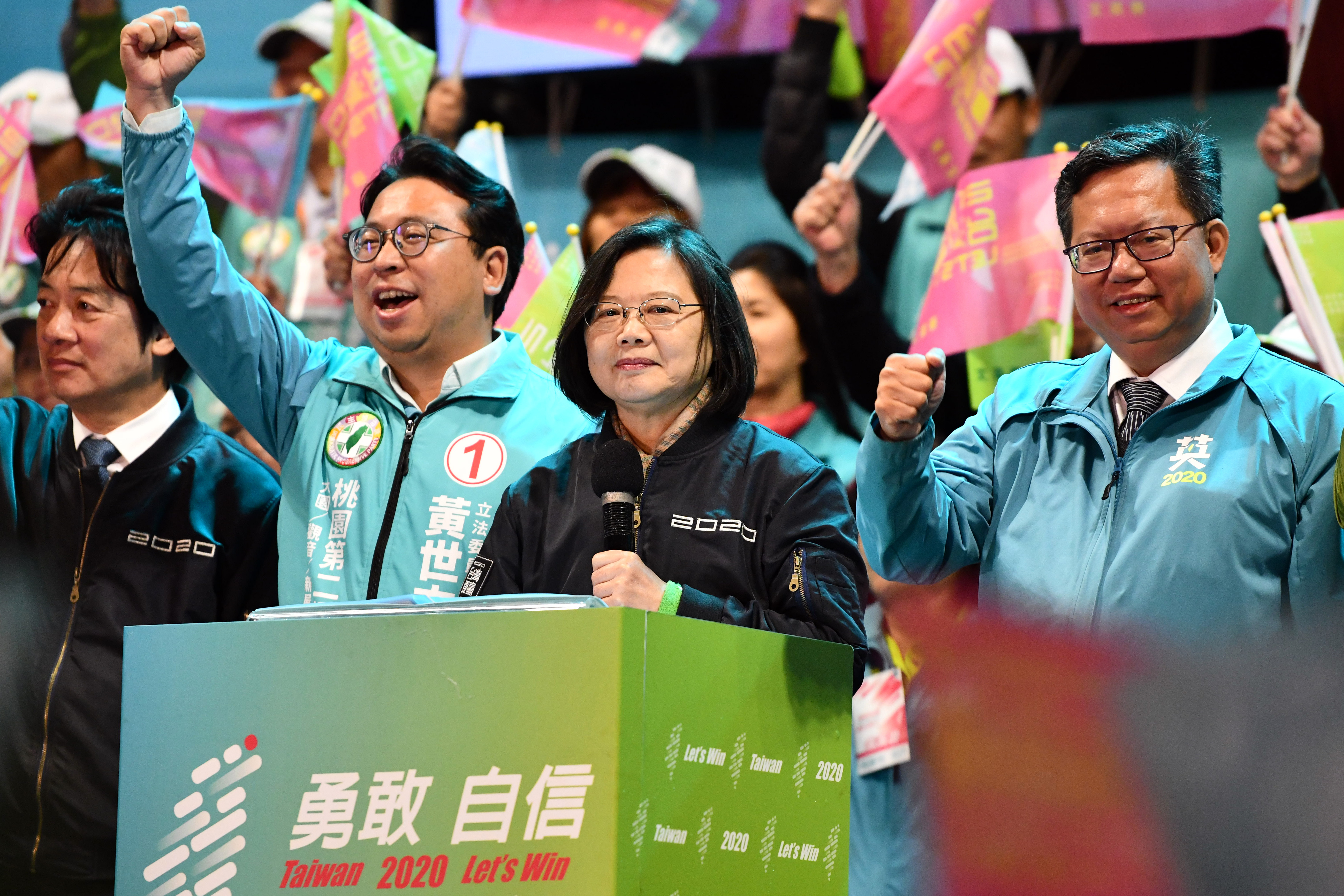What’s at stake in Taiwan’s election?
Many are viewing Saturday’s upcoming election as a referendum on Taiwanese independence from China


A free daily email with the biggest news stories of the day – and the best features from TheWeek.com
You are now subscribed
Your newsletter sign-up was successful
As Taiwan prepares for elections on Saturday, it seems all but certain incumbent President Tsai Ing-wen - a flagbearer for independence from mainland China - will coast to victory.
The economy has been a crucial battleground for the campaign, but commentators are painting the result as a referendum on Taiwan’s identity in the face of increasing pressure from Beijing to accept its authority under the “one country, two systems” model seen in Hong Kong and Macao.
Taiwan has ruled itself since 1949, when the Nationalist government lost its civil war with the Communist Party and fled across the Taiwan Strait. Initially a dictatorship, during the 1980s the island became the only Chinese-speaking democratic nation.
The Week
Escape your echo chamber. Get the facts behind the news, plus analysis from multiple perspectives.

Sign up for The Week's Free Newsletters
From our morning news briefing to a weekly Good News Newsletter, get the best of The Week delivered directly to your inbox.
From our morning news briefing to a weekly Good News Newsletter, get the best of The Week delivered directly to your inbox.
The issue of unification with China, which views Taiwan as little more than a restive province, has divided the electorate ever since.
As recently as August, President Tsai, who took office in May 2016, saw her party, the Democratic Progressive Party (DPP), only narrowly ahead of her pro-Beijing challenger, Han Kuo-yu, while in 2018 the DPP sustained a shocking loss in local elections, leading some commentators to conclude the island nation’s attitude towards it Chinese neighbour was softening.
However, according to recent polls, Tsai now boasts an approval rating of over 50%, while Han Kuo-yu, with his more conciliatory stance towards China, is reported at around 15%.
The role of Beijing
A free daily email with the biggest news stories of the day – and the best features from TheWeek.com
If, as is projected, Tsai is to win the upcoming election, she will have to overcome a massive campaign of fake news sown by China, which, says The Washington Post, “has stepped up disinformation efforts in recent years. The objective is not only to undermine Tsai... Beijing also aims to sow division and political chaos and thereby undermine the democratic institutions that distinguish Taiwan from the Communist-run mainland.”
Beijing has spent decades trying to convince the Taiwanese people that their economic prosperity depends on integration with the mainland, and at the same time has maintained military operations designed to intimidate.
In recent times, China’s approach has been more forceful, with President Xi Jinping arguing last year that unification was “an inevitable requirement for the great rejuvenation of the Chinese people.”
Taiwanese independence was “an adverse current from history and a dead end,” he said.
However, this pressure has served to bolster pro-independence forces in Taiwan. “China’s undisguised belligerence toward Taiwan - in words and actions - has given Ms. Tsai’s campaign a new vigor,” says The New York Times. “So have the protests in Hong Kong over China’s steady encroachment on that territory’s autonomy.”
The example of Hong Kong
This sudden shift in fortunes for President Tsai has been attributed in large part to Hong Kong’s recent pro-democracy protests.
“The Hong Kong protests are helping to intensify a deep vein of Taiwanese opposition to mainland China, which presents a fresh challenge to Chinese President Xi Jinping’s vision of delivering a strong and unified nation,” reports The Wall Street Journal. “Taiwanese activists have organized events in solidarity with Hong Kong, including a September demonstration in Taipei that drew 100,000 people.”
In a climate where China’s global influence seems to be ever-increasing, if, as is expected, Taiwan votes decisively for a pro-democracy government, this will be a huge setback for Beijing - and their campaign of interference and intimidation could be seen as a major blunder.
–––––––––––––––––––––––––––––––For a round-up of the most important stories from around the world - and a concise, refreshing and balanced take on the week’s news agenda - try The Week magazine. Get your first six issues free–––––––––––––––––––––––––––––––
The economy
While Saturday’s election will be an interesting gauge of how successful Chinese attempts to influence Taiwan’s elections have been, it is far from the only issue at play.
“It’s easy to look at Taiwan’s presidential election in terms of its relationship with China. In reality, the contest is less about its neighbor than ever before,” writes Tim Culpan in Bloomberg. “The economy is front and center for voters,” who are “focused on who can put food on the table and keep the cost of living, especially housing, in check. Taiwan is now a democracy where the main cleavage is economics, not pro- or anti- mainland sentiment.”
William Gritten is a London-born, New York-based strategist and writer focusing on politics and international affairs.
